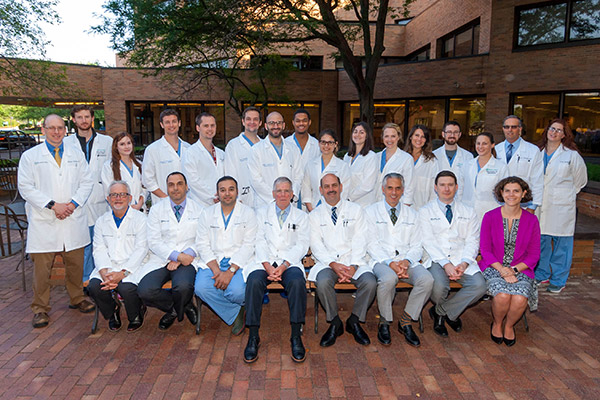
A team of researchers at Cleveland Clinic Akron General has found that surgical patients who are treated for pain without the use of opioids have shorter hospital stays and significant improvement in pain management scores.
The study evaluated outcomes of 155 colorectal surgery patients who participated in the hospital’s Enhanced Recovery After Surgery (ERAS) program. Findings included a shortened length of stay from 5.7 days to 2.3 days with fewer complications.
“As part of developing an ERAS, there is a special emphasis on preventing postoperative pain rather than focusing only on treating it afterward, as well as efforts to completely avoid opioid analgesics and their related side-effects,” says Mark Horattas, MD, Chairman of Surgery, who started the program at Akron General.
The abstract of this research presentation was published in October 2018 in the Journal of the American College of Surgeons. Perhaps the most dramatic finding was that postoperative narcotic analgesics could be avoided in 83 percent of cases, yet these patients reported significant improvement in pain management scores.
Akron General’s ERAS program began in 2016 when Dr. Horattas led a multispecialty group of other surgeons, anesthesiologists and nurses to adopt newer approaches to opioid-free pain management. The program proved so successful in colorectal surgery that it now also includes breast and bariatric surgery.
“Expansion of applying these opioid-free principles to potentially include all abdominal surgery is under development as a new Postoperative Pain Prevention Protocol,” Dr. Horattas says.
Patient education is a key component. Akron General’s ERAS Care Coordinator Kelly Bahr, RN, accompanies surgical patients throughout their care, from pre-surgery consultation to personal follow-ups to monitor pain and recovery.
A recent philanthropic gift from Jim and Vanita Oelschlager, establishing the Horattas Fund for Surgery at Cleveland Clinic Akron General, is advancing the ERAS team’s work. Already the gift has permitted expanding Ms. Bahr’s ERAS position to full time, enabling her to help more patients and provide in-service training to staff.
“Our caregivers who treat these patients with the newer modified ERAS protocols have been truly impressed with just how much better the recovery experience can be for our surgical patients,” Dr. Horattas says. “We are honored by the trust our donors have placed in us. We are meeting the challenges of improving the care of our patients, as well as having a positive impact on our communities’ growing opioid crisis.”

